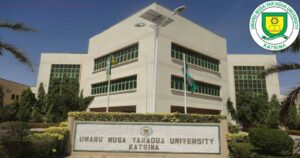JAMB’s Shocking Revelation: 3,000 Fake Graduates Under Investigation

In a groundbreaking announcement, the Joint Admissions and Matriculation Board (JAMB) has uncovered a staggering 3,000 individuals suspected of possessing fake university degrees in Nigeria. This alarming discovery has raised serious concerns about the integrity of academic qualifications in the country and has prompted an extensive investigation into the matter.
The Scope of the Investigation
The investigation, which is being conducted by JAMB in collaboration with the Federal Government, aims to identify and address the issue of fraudulent academic credentials that have infiltrated the Nigerian education system. JAMB’s registrar, Is-haq Oloyede, emphasized the urgency of the situation, noting that these fake graduates pose a significant threat to the credibility of higher education in Nigeria.
Oloyede revealed that many of the identified individuals have been found to hold degrees from institutions that do not exist or have been involved in illegal admissions practices. This revelation has sparked outrage among stakeholders in the education sector, who are calling for stricter regulations and oversight to prevent such occurrences in the future.
Implications for the Education System
The existence of fake graduates raises critical questions about the quality and reliability of education in Nigeria. Employers and institutions rely on academic qualifications to assess candidates’ capabilities, and the presence of fraudulent degrees undermines this process.
The Nigerian government has previously issued waivers to a significant number of candidates admitted illegally, and the current investigation aims to rectify these past mistakes. With the identification of 3,000 fake graduates, JAMB is determined to restore trust in the educational system and ensure that only qualified individuals are granted degrees.
JAMB’s Commitment to Integrity
In response to this troubling situation, JAMB has vowed to take decisive action against those involved in the issuance and acquisition of fake degrees. The board is implementing measures to enhance the verification process for academic qualifications and is urging institutions to adhere strictly to the established admissions guidelines.
Oloyede has called on candidates to report any suspicious activities related to admissions and degree issuance, emphasizing the importance of collective efforts in combating this issue.
Conclusion
The revelation of 3,000 fake graduates in Nigeria is a wake-up call for the education sector, highlighting the urgent need for reforms and stricter regulations. As JAMB continues its investigation, stakeholders are hopeful that these efforts will lead to a more transparent and credible academic environment. The integrity of Nigeria’s education system is at stake, and it is crucial for all parties involved to work together to eliminate fraudulent practices and uphold the standards of higher education.
Stay tuned for further updates as JAMB takes significant steps to address this pressing issue and the credibility of academic qualifications in Nigeria.





